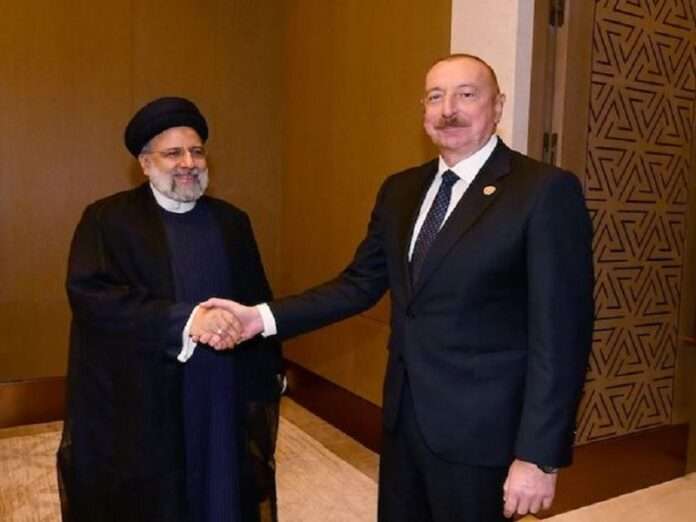It was just two months ago that many on social media were speculating that Azerbaijan and Iran were on the brink of war over Karabakh, which was always absurd to imagine but had nevertheless become the dominant narrative among a lot of folks in the Alt-Media Community at the time. As it turned out, Azerbaijan’s one-day anti-terrorist operation successfully liberated that region from Armenian occupation without Iranian interference, and actually paved the way for their rapprochement.
Mutual suspicions driven by each’s ties with third parties, particularly Azerbaijan’s with Israel and Iran’s with Armenia, had hitherto impeded their cooperation on regional integration projects. These concerns to put to rest after no war broke out between them over Karabakh like disinformation agents fearmongered would happen. Shortly afterwards, these two realized that neither is a threat to the other, and that they’d both benefit by finally expanding their economic ties in a meaningful way.
Armenia’s Western-influenced obstinance in refusing to comply with the ninth clause of the Moscow-mediated November 2020 ceasefire regarding the creation of a regional integration corridor through its territory for connecting Azerbaijan’s constituent parts played a major role in bring them together. Iran agreed to build bridges over their shared border together with road and rail infrastructure for accomplishing what Armenia had declined to do, which Azerbaijan sincerely appreciated.
This was detailed in early October in the following analysis about how “Tasnim News’ Latest Reports Prove That Iranian-Azeri Ties Are Actually Improving”. That piece also explained why warmongering disinformation reached a fever pitch in the weeks prior only to ultimately fizzle out after nothing happened. Those who aren’t familiar with this should review the preceding analysis for relevant background information into this subject since the rest of the present piece builds upon that insight.
The Economic Cooperation Organization (ECO) annual summit was held last week in the Uzbek capital of Tashkent and saw Presidents Aliyev and Raisi meeting on the sidelines of that event. The first’s official website reported on their discussions here, the details of which will now be summarized prior to being briefly analyzed in the larger context. President Raisi importantly began by praising his Azeri counterpart for returning Karabakh “to its ancestral territory after many years.”
He then declared that “we are ready to support you in the reconstruction of Karabakh and offer our services, including in the engineering and technical fields. Iranian companies are ready to help our dear friends from Azerbaijan in the reconstruction of Karabakh and the development of Azerbaijan in general.” Quite clearly, the prior warmongering disinformation never had any basis in fact since Iran is prepared to profit from the restoration of Azerbaijan’s territorial integrity, not from preventing it.
President Raisi then added that “The Aghband route over the Araz River and the ongoing projects implemented there in agreement with each other meet the interests of both countries. This guarantees transport links between Azerbaijan, Iran and Nakhchivan and eliminates concerns in this area.” This part of his speech reinforces the observation that Iran is prepared to replace Armenia’s role in facilitating connectivity between Azerbaijan’s constituent parts and profiting accordingly.
The Iranian leader also said that “We are sure that, contrary to the wishes of our rivals, our relations are improving day by day, and the countries that want to hinder our relations cannot implement their plans and are disappointed.” He was deliberately vague, but he was probably referring to America, Israel, and also the ultra-nationalist Western-based Armenian diaspora that played a major role in propagating the prior warmongering disinformation about an allegedly imminent Azeri-Iranian war over Karabakh.
President Aliyev spoke afterwards and began by expressing gratitude to his Iranian counterpart for congratulating him on restoring his country’s territorial integrity and sovereignty. He then talked about their shared region’s geo-economic future and the need to develop related connectivity infrastructure that Armenia had hitherto refused to facilitate. It’s for this reason that he’s so appreciative of Iran replacing Armenia’s role through those previously described projects that they agreed upon.
The Azeri leader expressed hope that these road and rail routes will “become another direction of the North-South Transport Corridor.” He also promised that they will “be accessible for our neighbors and partner countries”, which implies that this megaproject’s Russian and Indian anchors will benefit from those routes’ construction, not to mention Azerbaijan’s Turkish ally. The recent improvement in Iranian-Taliban ties could also lead to more Russian- and Turkish-Afghan connectivity via these means too.
Like his Iranian counterpart, President Aliyev also ended by observing how “In previous years, we witnessed the attempts of extra-regional forces to interfere in friendly relations between Azerbaijan and Iran. These attempts were in vain.” He was also vague, but he was probably referring to the same ultra-nationalist Western-based Armenian diaspora and perhaps also those Western politicians who voted under that lobbying group’s influence to condemn his country at the European Parliament last month.
His official website ended its report by noting that they then discussed regional connectivity projects, particularly the North-South Transport Corridor and the jointly Russian-constructed Rasht-Astara railway, as well as the 3+3 format between them, Armenia, Georgia, Russia, and Turkiye. In light of these objectively existing and easily verifiable facts, there’s no doubt that the Azeri-Iranian rapprochement is proceeding rapidly, which bodes well for their shared region’s future role in the multipolar world order.







